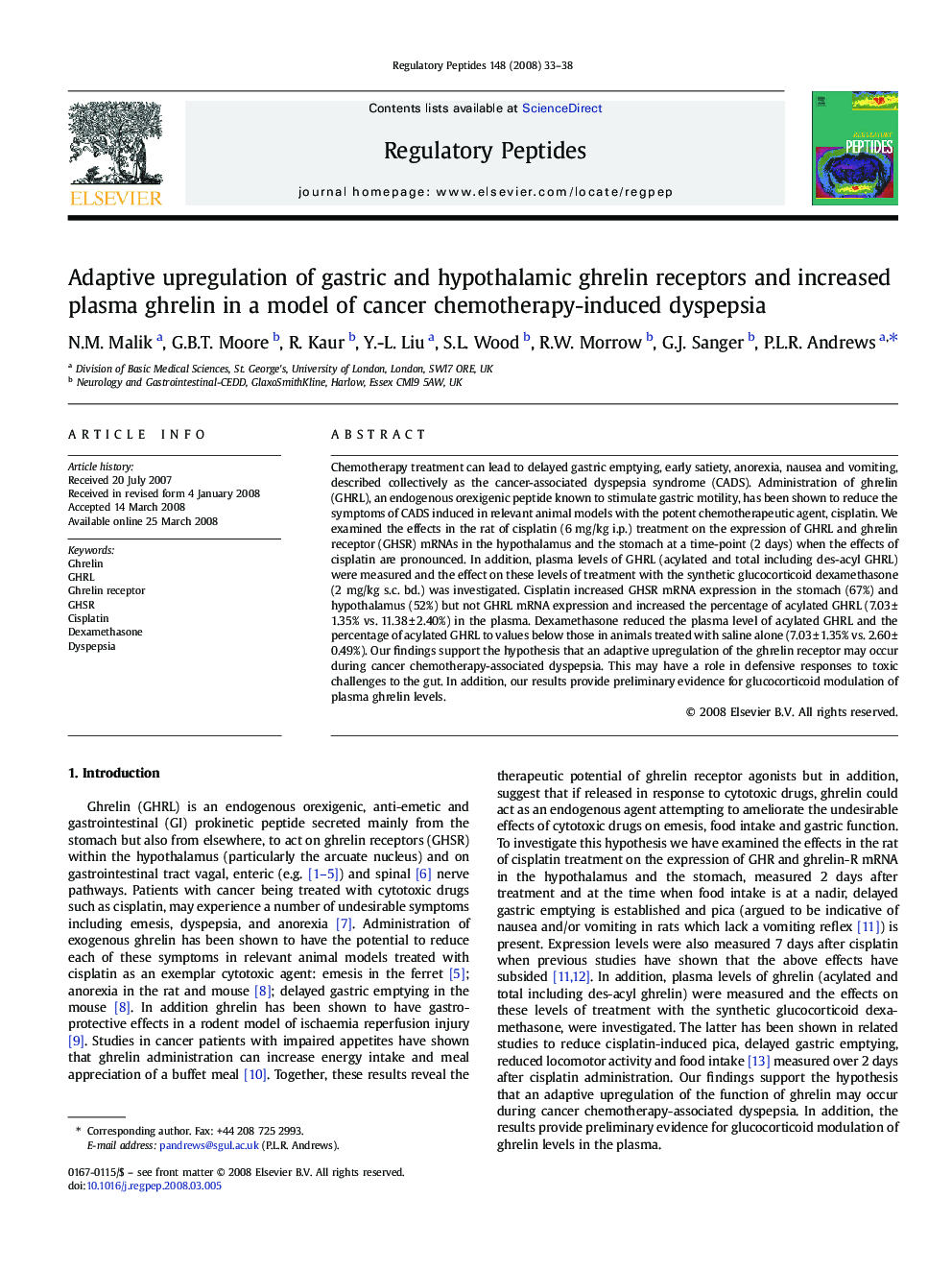| Article ID | Journal | Published Year | Pages | File Type |
|---|---|---|---|---|
| 2023181 | Regulatory Peptides | 2008 | 6 Pages |
Chemotherapy treatment can lead to delayed gastric emptying, early satiety, anorexia, nausea and vomiting, described collectively as the cancer-associated dyspepsia syndrome (CADS). Administration of ghrelin (GHRL), an endogenous orexigenic peptide known to stimulate gastric motility, has been shown to reduce the symptoms of CADS induced in relevant animal models with the potent chemotherapeutic agent, cisplatin. We examined the effects in the rat of cisplatin (6 mg/kg i.p.) treatment on the expression of GHRL and ghrelin receptor (GHSR) mRNAs in the hypothalamus and the stomach at a time-point (2 days) when the effects of cisplatin are pronounced. In addition, plasma levels of GHRL (acylated and total including des-acyl GHRL) were measured and the effect on these levels of treatment with the synthetic glucocorticoid dexamethasone (2 mg/kg s.c. bd.) was investigated. Cisplatin increased GHSR mRNA expression in the stomach (67%) and hypothalamus (52%) but not GHRL mRNA expression and increased the percentage of acylated GHRL (7.03 ±1.35% vs. 11.38 ± 2.40%) in the plasma. Dexamethasone reduced the plasma level of acylated GHRL and the percentage of acylated GHRL to values below those in animals treated with saline alone (7.03 ± 1.35% vs. 2.60 ±0.49%). Our findings support the hypothesis that an adaptive upregulation of the ghrelin receptor may occur during cancer chemotherapy-associated dyspepsia. This may have a role in defensive responses to toxic challenges to the gut. In addition, our results provide preliminary evidence for glucocorticoid modulation of plasma ghrelin levels.
